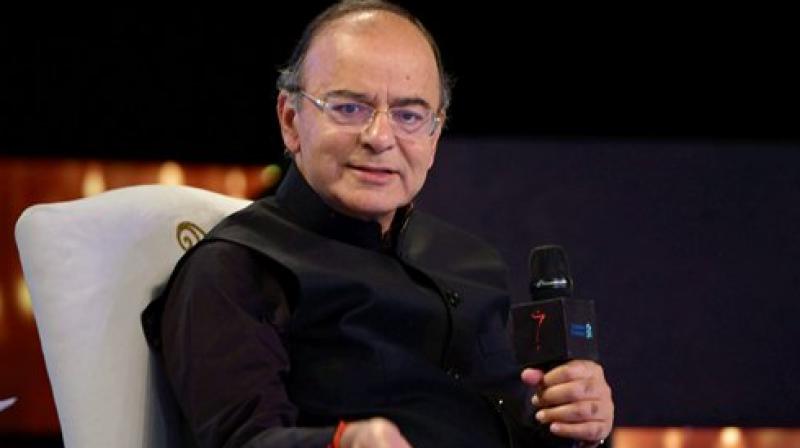GST inches closer to July rollout as LS passes four key legislations
Prime minister Narendra Modi hailed passage of landmark tax reform by saying it is “New Year, New Law, New Bharat.â€

New Delhi: The Lok Sabha on Wednesday passed the four GST bills after finance minister Arun Jaitley allayed fears of a price spike in the new indirect tax regime. He reassured that prices will be slightly lower in the regime.
Prime minister Narendra Modi hailed the passage of landmark tax reform by saying it is “New Year, New Law, New Bharat.”
The goods and services tax (GST) subsumes a waft of indirect taxes and levies. The new structure is expected to replace the current indirect tax regime from July 1 even as a section of industry has demanded that it be deferred by two months.
With the lower house passing the four supporting GST bills, the biggest tax overhaul in decades has reached the last mile of the legislative process. Now, these bills, introduced and cleared as money bills, would be introduced in the Rajya Sabha for its approval before being finally sent for Presidential assent and then notification.
The states will simultaneously pass the state GST (SGSTs) in their respective assemblies, paving the way for migration to the ‘One nation, One tax’ regime.
Replying to the seven-hour debate on GST in the lower house, the finance minister said that preparation for rolling out the new structure is nearing completion and the process to fit in various items in the four-tier tax slab will begin next month.
On apprehensions raised by the opposition regarding a shift in law-making powers of Parliament and state assemblies to GST Council, the finance minister said law has been framed keeping the federal structure in mind and based on the principle of shared sovereignty of both the Centre and the state governments.
“The GST Council is India’s first federal institution where sovereignty of the Centre and the states in relation to indirect taxes have been pulled in together in a federal institution. It is incumbent on all of us to make sure that this federal institution works. The delicate balance between what the Centre and states have unanimously agreed is almost a federal contract. It is federal contract with constitutional sanction,” Jaitley said.
The GST Council is a joint forum of Centre and states headed by Union finance minister with state finance ministers as its other members.
The all-powerful body has already cleared four-tier tax slabs of 5, 12, 18 and 28 per cent plus an additional cess on demerit goods like luxury cars, aerated drinks and tobacco products.
Jaitley said the tax beyond 28 per cent on luxury items will be considered as compensation tax for the next five years and the money will be used for compensating states, which suffer revenue loss in the GST regime in initial years. If any fund is left after paying compensation, it will be shared between the Centre and the states.
Referring to multiple tax structure in the GST regime, Jaitley said the extra component beyond 28 per cent tax has been kept as cess as keeping it as tax would have negative impact on the consumers. He said that keeping it as tax would have resulted some portion of the money going to devolution.
“To make a compensation package of Rs 50,000 crore, we would have to levy tax of Rs 1.72 lakh crore,” Jaitley noted.
The four GST related bills approved by the Lok Sabha include central goods and services tax bill 2017 (CGST), the integrated goods and services tax bill 2017 (IGST), the union territory goods and services tax bill 2017 (UTGST) and the goods and services tax (compensation to the states) bill 2017 (Compensation bill).
They deal with taxes pertaining to the Centre, states, inter-state trade, Union Territories (UTs) and compensation for states’ losses.

